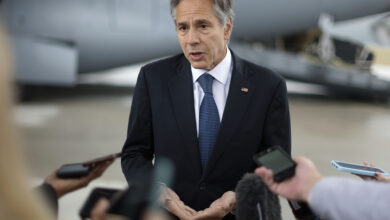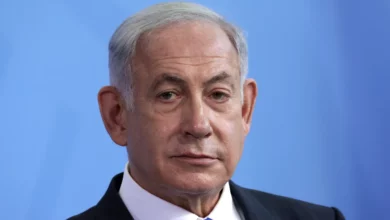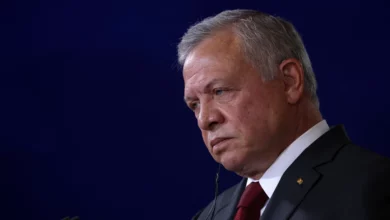Tehran — Iranian President Mahmoud Ahmadinejad called for unity in the Middle East on Monday, a conciliatory message that contrasted starkly with another senior figure who accused Saudi Arabia of "heresy and deception."
Relations between the two major Gulf powers have been strained by anti-government demonstrations in Bahrain which neighbor Saudi Arabia helped put down by sending in troops to bolster Bahraini forces.
At a parade to mark the annual army day, Ahmadinejad said events had shown Washington had failed to dominate the region, where uprisings have taken place against several US-backed governments, and he issued a plea for "honest unity."
"Safety and stability of the region depends on honest unity and cooperation between nations and leaders in the region," Ahmadinejad said in a speech.
But at the same ceremony, where military hardware and troops paraded past the top brass, Supreme Leader Ayatollah Ali Khamenei's senior military adviser said Iran's anger at Riyadh's intervention in Bahrain had not diminished.
"The presence of Saudi forces in Bahrain to suppress the Bahraini people is against international law and is a kind of military interference in the internal affairs of Bahrain which is condemned from the international law standpoint," Yahya Rahim-Safavi, former chief of Iran's elite Revolutionary Guards, told reporters.
"The presence and behavior of Saudi Arabia is a kind of ignoble heresy," he said, adding: "The same fate might happen to the country itself and under the same pretext Saudi Arabia might be attacked."
NAVAL OPERATIONS
The war of words between Iran, the largest Shia Muslim-dominated country in the region and an arch foe of the United States, and the Sunni Gulf Arab monarchies which are allied to Washington, has intensified in recent days.
Saudi Arabia's top cleric last week accused Iran of interfering in other countries' affairs and accused it of "hypocrisy and deception."
While showing off its military strength, Iran has stressed it had no bellicose intentions against its Arab neighbors, despite being characterized as a major threat by Israel which believes Tehran is seeking nuclear weapons, a charge it denies.
The commander of Iran's army said it planned to extend the range of its naval operations, weeks after it sent two navy ships through the Suez Canal for the first time since the 1979 Islamic revolution, a move Israel described as a "provocation."
"As you observe today Iran has opened a footing in the Mediterranean Sea area, and in the same way that foreign forces enter our region so can we enter international waters," Major General Ataollah Salehi was quoted as saying by the semi-official Mehr news agency.
"We intend to double the range of our water presence twice what it is now," he said. "Presently the navy's mission zone applicable for submarines has shifted from the Persian Gulf to the Sea of Oman."




